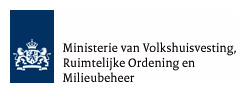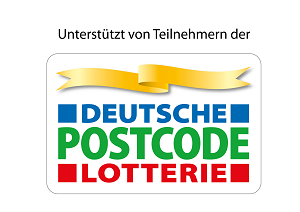EU Ambassadors impressed by project “Switch to sun-live with comfort”
Report from EU news on Ukrainian project which aims at improving health, reducing poverty and increasing energy security
25.10.2011 |WECF
Read the following report from the EU:
"With their wine, cultural, historical and ecological potential, Ukraine's most south-western rayons are a beautiful neighbouring region to the European Union, simply waiting to be developed as a tourist destination," - said Jose Manuel Pinto Teixeira, Ambassador of the European Union in Ukraine. From 1 to 2 October, Ambassador Pinto Teixeira, together with the Ambassadors of Great Britain, H.E. Leigh Turner, and Greece, H.E. Georgios Georgountzos, visited one of the most isolated regions of Ukraine, southern Bessarabia, Odessa oblast. Other EU member states – including Bulgaria and Poland were also represented during the visit.
Upon meeting teachers, students and community organisers of Banivka (360 households) the EU Ambassador remarked: "If Ukraine were run like Community Based Approach (CBA) micro-projects and their local organizations, the country would be well placed to integrate the EU. These EU-UNDP projects, which have improved the conditions in over 1000 Ukrainian villages, are a perfect example of strong community initiative, ownership, effective management and financial accountability." Through community dialogues, one priority problem was democratically selected and a solution plan agreed. With support from the EU, through an UNDP implemented project, the community improved energy saving in the local school by replacing 100 windows and five doors.
The EU visiting party also attended a "demonstration" house in Tatarbunary, in which villagers are shown – through real life examples and tools - how to use solar heating and environmentally friendly insulation techniques. The project, which is introducing modern energy saving technologies in rural communities over four years, focuses on local capacity building, training local craftsmen and women how to construct, maintain and use solar collectors and insulation measures. In Ukraine the project is implemented by three environmental NGOs: Ecoclub Rivne, National Ecological Centre of Ukraine, Vozrozhdenie Tatarbunary.
In addition to EU-funded projects, the EU visitors were introduced to the region's great development potential in the wine sector. Rarely know to foreigners, the southern Bessarabia region, on the "grape" 46/47° latitude of 46/47° (same as Bordeaux and Burgundy), is home to Ukrainian wines Shabo, Guliev and Kolonist. With the large majority of Ukrainian consumers drinking national wines, investments in their marketing and quality production could greatly increase their competitiveness–at home, in the EU and other markets. With the EU-Ukraine Deep and Comprehensive Free Trade Agreement currently being negotiated, the Ukrainian wine and spirits industry expects to come under pressure regarding the European Union Geographic Indications (GIs). Names such as Cognac, Champagne and Porto have legal ties to specific regions in the EU, and Ukraine will have to protect the full list of approx. 3000 EU GIs. To support its integration in the EU market, Ukraine would adapt these names to EU legislation. The EU is currently supporting the process to help the Ukrainian wine, spirits and dairy sectors to modernize and promote their products under new names.
The EU tour also included the famous Akkerman fortress in Bilhorod Dnistrovskiy – one of the ten most ancient surviving towns of the world (UNESCO), and Vilkovo, the "Venice of the Danube Delta", whose Biosphere Reserve is Europe's largest wetland and water purification system – also recognized by UNESCO on the World Natural Heritage list. The region could one day no longer be in the periphery, but rather a part of the EU.
For more information about the project click here.
Press release "Switch to sun-live with comfort".
Related News
Meet the Winners of the Gender Just Climate Solutions Award at COP24
On the 70th anniversary of the Universal Declaration of Human Rights, we awarded Gender Just Climate Solutions Winners at the climate negotiations in Katowice, Poland
11.12.2018
Invitation: Gender Just Climate Solutions Award 2018
10 December, COP24 Katowice
04.12.2018
Getting to the Future We Want
4-7 November, Brussels: European Environmental Bureau’s (EEB) Annual Conference
12.11.2018
GoodFood4All
WECF and partners all over Europe start GoodFood4All Campaign
06.11.2018
#Ruralwomen: join our Women2030 campaign!
15.10.2018






































